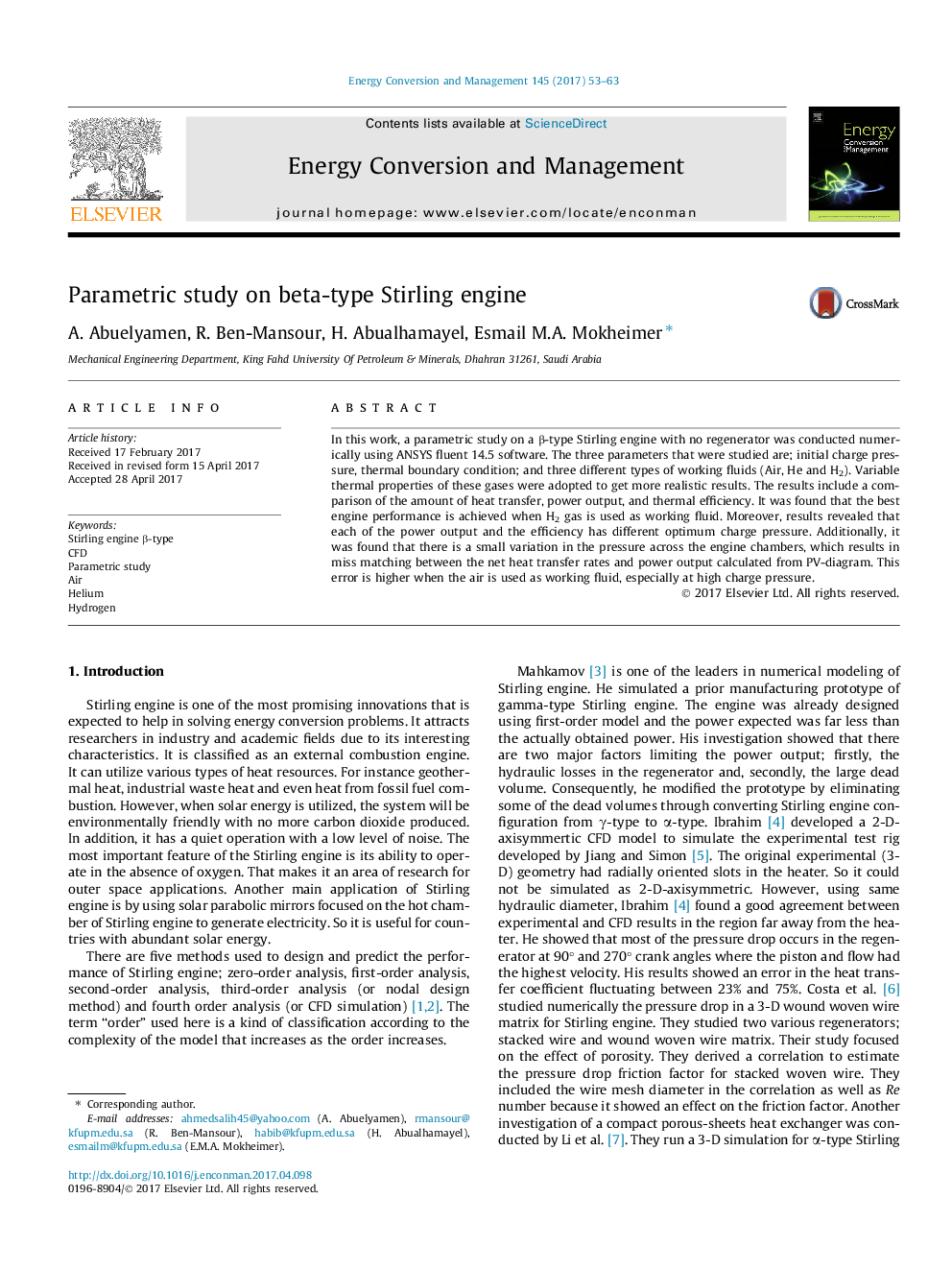| Article ID | Journal | Published Year | Pages | File Type |
|---|---|---|---|---|
| 5012722 | Energy Conversion and Management | 2017 | 11 Pages |
Abstract
In this work, a parametric study on a β-type Stirling engine with no regenerator was conducted numerically using ANSYS fluent 14.5 software. The three parameters that were studied are; initial charge pressure, thermal boundary condition; and three different types of working fluids (Air, He and H2). Variable thermal properties of these gases were adopted to get more realistic results. The results include a comparison of the amount of heat transfer, power output, and thermal efficiency. It was found that the best engine performance is achieved when H2 gas is used as working fluid. Moreover, results revealed that each of the power output and the efficiency has different optimum charge pressure. Additionally, it was found that there is a small variation in the pressure across the engine chambers, which results in miss matching between the net heat transfer rates and power output calculated from PV-diagram. This error is higher when the air is used as working fluid, especially at high charge pressure.
Keywords
Related Topics
Physical Sciences and Engineering
Energy
Energy (General)
Authors
A. Abuelyamen, R. Ben-Mansour, H. Abualhamayel, Esmail M.A. Mokheimer,
